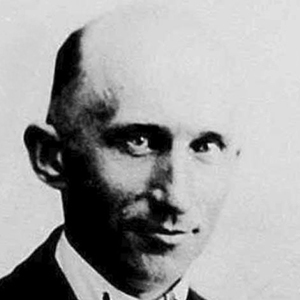Titanic Passenger Owes Life to His Ability as a Swimmer
Displays Such Strength That He is Taken From Icy Water to Man an Oar in Lifeboat Filled With Women---Thrilling Details of the Awful Catastrophe
GLENDIVE, June 6. – Oscar Hetman [sic], a well known St. Paul land man who is in the city this week, owes his life to the fact that he was striking out boldly for his life in the icy waters after he made a leap from the deck of the ill-fated Titanic, and was picked up by one of the lifeboats which was short a rower. Mr. Hetman's energetic movements in the water made the officer in the boat think he would fill the bill as an oarsman.
Mr. Hetman has been connected with the J. P. Rogers Land company of St. Paul, a concern which has handled many acres of rich Dawson county, Montana, lands, and was here this week looking up some valuable acreage near Savage and Crane. While not seeking notoriety in connection with his experiences on the lost steamer. Mr. Hetman was persuaded to talk about it, and he related a most interesting tale.
Explaining his presence on the big boat, Mr. Hetman said he had been across the ocean on a mission for the Rogers company, and was bringing back with him 14 Swedish immigrants, every one of whom was lost.
"In common with the rest of the people, I came up on deck when the Titanic struck the iceberg, to see what had happened," said Mr. Hetman. "For the first half hour thereafter little excitement prevailed, but when the lifeboats kept clearing away from the ship's side, we all began to realize that the Titanic was gradually sinking.
"I hurried to my stateroom to secure a life preserver, but the place was so full of water that I couldn't get to it. I hurried back on deck, and it was easy to see that all hope was gone. I could see no other possible chance of safety, so I waited until the steamer was just about to make that awful plunge downward, when I ran to the rail and jumped into the sea.
"I must have been in those terribly chilling waters for about five minutes. I don't believe any man could have stood it for 10 minutes and lived. I was swimming as best I could when along came a lifeboat containing 45 women and with but three men – not enough to man the oars. This was the condition that saved my life. They hauled me on board because they needed me. I was exhausted and stiff with cold, but as soon as I got my wind I began rowing and kept it up for about six hours. It was the very best thing for me. Otherwise I would have perished from the awful cold.
"We were but a short distance from the Titanic when the big steamer reared stern upward and then lunged downward into the depths of Stygian darkness. We could feel the pulling upon our boat of the suction involved in the awful vortex of swirling waters, but were out of the zone of danger.
"Some gross inaccuracies have crept into published accounts of the disaster, due probably to the incoherent condition of men's minds at such a time. There was no fighting for places in the boats. When the first lifeboat was lowered a bunch of Italians made a rush for it, but a ship's officer shot down two or three of them and drove them all back. After that the embarkation of the survivors proceeded in an orderly manner.
"I tell you, gentlemen, the last half hour on that steamer's deck was hell. Here you would see one man praying; nearby would be another swearing; a little farther away one who had apparently gone crazy. Pictures were then painted in memory which can never be erased. I never saw people 'turn religious' so quickly in my life as they did during those awful scenes."
Mr. Hetman has begun suit for damages against the White Star Line, and he expresses himself bitterly against the company for its criminal responsibility in connection with this world-appaling disaster. He says that, whereas other vessels traversing the same ocean lanes, when apprised of the presence of icebergs, made wide detours under reduced speed, the officers of the Titanic, when advised the night before that these floating palaces of death were likely to be encountered, fired up two additional boilers and forged ahead at greater speed than ever – "afflicted with the prevailing speed mania, and trying to make a record.
"The United States looks good to me," sententiously remarked Mr. Hetman as he closed his narrative. "I don't believe I will cross the ocean again."
We would like to thank Wolfric Rogers for contributing this article. If you would like to contribute a primary source to Titanic Archive, please contact us.
Source Reference
Title
Titanic Passenger Owes Life to His Ability as a Swimmer
Survivor
Oskar Arvid HedmanDate
June 7, 1912
Newspaper
Billings Gazette (Billings, MT)
Copyright Status
Public DomainThis is item can be used freely as part of Titanic Archive’s Open Access policy.
